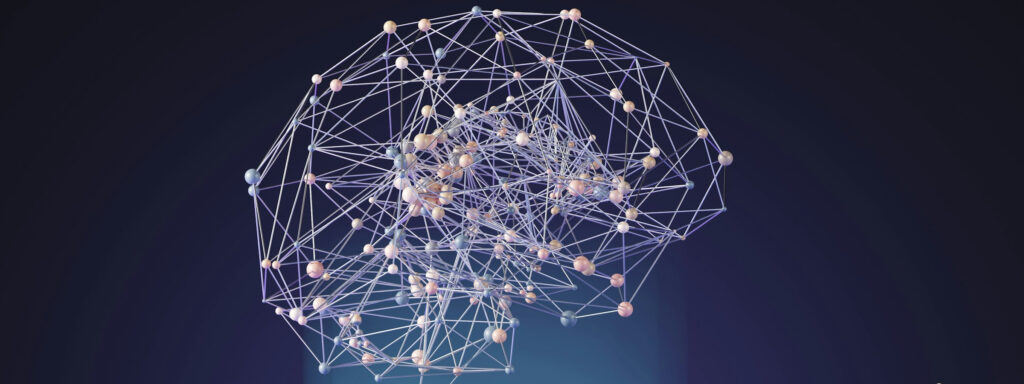Benefits of Artificial Intelligence in Psychology and Mental Health
Free Online Mental Health Self-Tests by Artificial Intelligence (AI) – Use our ChatBot below:
Exploring the Transformative Benefits of Artificial Intelligence in Psychology and Mental Health Below:

In recent years, the integration of Artificial Intelligence (AI) into various fields has sparked considerable excitement and debate. One area where AI shows immense promise is in psychology and mental health. The convergence of advanced algorithms, big data analytics, and machine learning techniques has opened up new avenues for understanding, diagnosing, and treating mental health disorders. In this article, we delve into the transformative benefits of AI in psychology and mental health, exploring how technology is revolutionizing traditional approaches and offering innovative solutions to age-old challenges.
- Early Detection and Diagnosis: One of the most significant advantages of AI in psychology is its ability to facilitate early detection and diagnosis of mental health disorders. AI-powered tools can analyze vast amounts of data, including patient history, genetic markers, behavioural patterns, and even social media activity, to identify potential risk factors and warning signs. For example, machine learning algorithms can detect subtle changes in language use or communication patterns indicative of depression or anxiety.
These AI-driven diagnostic tools enable clinicians to intervene proactively, offering timely interventions and preventive measures to individuals at risk of developing mental health issues. By identifying symptoms at an early stage, AI helps reduce the stigma associated with mental illness and enhances treatment outcomes through timely intervention.
- Personalized Treatment Plans: AI holds immense potential in tailoring treatment plans to individual needs, a crucial aspect of effective mental healthcare. Traditional approaches often follow a one-size-fits-all model, which may not address the unique characteristics and preferences of each patient. However, AI algorithms can analyze diverse datasets, including genetic information, brain imaging scans, treatment history, and response to interventions, to develop personalized treatment plans.
Through machine learning techniques, AI systems can predict treatment outcomes and recommend the most effective therapeutic interventions for specific individuals. This personalized approach not only improves treatment efficacy but also minimizes adverse effects and reduces healthcare costs by avoiding trial-and-error approaches.

- Virtual Therapeutic Support: The rise of AI-powered virtual assistants and chatbots has revolutionized the delivery of therapeutic support and mental health interventions. These digital companions are available 24/7, providing instant access to support resources and guidance to individuals experiencing distress or seeking counseling. Virtual therapists powered by AI algorithms can engage in natural language conversations, offering empathetic responses and evidence-based interventions tailored to the user’s needs.
Moreover, virtual reality (VR) technology combined with AI holds promise in immersive therapeutic experiences for treating phobias, post-traumatic stress disorder (PTSD), and other anxiety-related disorders. VR environments simulate real-life scenarios in a controlled setting, allowing individuals to confront and gradually overcome their fears under the guidance of AI-driven virtual therapists.
- Data-driven Insights and Research: AI facilitates the analysis of vast datasets generated from diverse sources, including electronic health records, neuroimaging studies, wearable devices, and online forums. By mining this data, researchers gain valuable insights into the underlying mechanisms of mental health disorders, identifying biomarkers, genetic predispositions, and environmental factors contributing to their development.
Furthermore, AI-driven predictive modeling can forecast population-level trends in mental health outcomes, enabling policymakers to allocate resources more effectively and implement targeted interventions. By leveraging big data analytics and machine learning algorithms, researchers can accelerate the discovery of novel treatments and interventions, ushering in a new era of precision mental healthcare.

- Accessibility and Affordability: AI has the potential to bridge the gap in access to mental healthcare services, particularly in underserved communities and remote areas. Teletherapy platforms powered by AI algorithms offer convenient and affordable access to counseling and support services, overcoming geographical barriers and reducing wait times for appointments.
Moreover, AI-driven mental health apps and self-help tools empower individuals to monitor their well-being, track mood fluctuations, and access evidence-based interventions from the comfort of their homes. These digital solutions democratize mental healthcare, making it more accessible to diverse populations regardless of socioeconomic status or geographic location.
Advances in AI Emotional Studies: The Z.L.U.F. Double Hearts NFT project is an artificial intelligence (AI) Mind Project created by a specialized medical team. The Z.L.U.F. Double Hearts NFT is a projected psychological expression. Perceptions and differences in color represent a psychological interpretation of identity and purpose. Your Double Hearts NFT may reveal your personality and emotional functioning – it can express underlying thoughts, help you find your true self, feel and understand different emotions.
Conclusion: The integration of AI into psychology and mental health represents a paradigm shift in how we understand, diagnose, and treat mental illness. From early detection and personalized interventions to virtual therapeutic support and data-driven research, AI offers a plethora of benefits that hold the potential to revolutionize the field. However, it is essential to address ethical considerations, such as data privacy, algorithmic bias, and the human-AI interface, to ensure responsible and equitable deployment of these technologies. By harnessing the power of AI responsibly, we can unlock new opportunities to enhance mental well-being and improve the lives of millions worldwide.